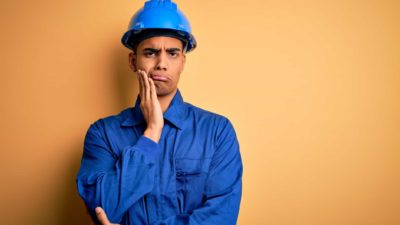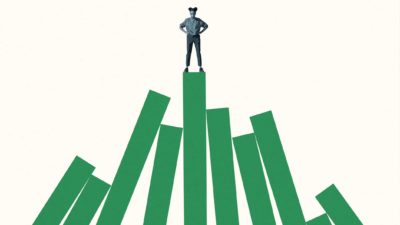The housing market recovery appears to be in full swing, with national average dwelling prices lifting 1.1% in December and 2.3% over 2019, according to the ABC. This leads to a better outlook for building supply companies in 2020.
We take a closer look at the broader Aussie housing construction market and hone in on some of the ASX building product suppliers to watch in 2020.
The housing construction market
The housing construction market generally lags the established housing market. A sustained recovery in house prices is therefore required to increase rates of construction and sales for building suppliers. New building activity remained in decline at the end of 2019, according to the Australian Financial Review (AFR). Yet low interest rates and a loosening in lending criteria are expected to fuel the continued recovery in house prices.
As reported in the AFR article, detached housing construction is predicted to begin recovery first in 2020, followed by the apartment market. The sharemarket frequently looks 9 to 12 months ahead, so by the end of 2020 sales for building materials suppliers may have started to see an uptick.
Here are 3 ASX-listed shares set to benefit from the recovery.
James Hardie Industries (ASX: JHX)
James Hardie is a building products manufacturer producing cladding, fibre-reinforced cement, flooring, walling and other products. According to the AFR piece, Citi has a price target of $30 on James Hardie shares, which the AFR calls "one of the top picks for 2020". James Hardie is heavily exposed to the US, which is expected to account for 76% of profits in 2020–21. This is considered a bonus, given the US economy is expected to pick up in the lead up to the presidential election. James Hardie shares are currently trading at $28.06.
Results
In November, James Hardie announced its results for the second quarter of fiscal year 2020 and the half year ended 30 September 2019. Group adjusted net operating profit (NOPAT) for the half year was US$188.8 million up 17% over the prior corresponding period (pcp). Group adjusted earnings before interest and tax (EBIT) was US$258.6 million for the half year, an increase of 21% on the pcp. Full year NOPAT guidance was raised to be between US$340 million and US$370 million.
Outlook
In the second quarter James Hardie delivered net sales and EBIT growth in local currency in all 3 regions – North America, Asia Pacific, and Europe. James Hardie expects modest growth in the US housing market in fiscal year 2020, with new construction starts of approximately 1.2 million to 1.3 million. In Australia, the company predicts a high single digit contraction in its addressable market in fiscal 2020, but that volumes will continue to grow above market. In Europe, James Hardie expects year-on-year sales and EBIT growth in 2020 although the underlying addressable market is expected to decrease slightly.
CSR Limited (ASX: CSR)
CSR building brands include Gyprock plasterboard, PGH bricks and pavers, and Bradford insulation. Shares in CSR increased 64% over 2019 and are currently trading at $4.60.
Results
In the half year ending 30 September, CSR reported group EBIT down 16% to $113 million, reflecting a lower result from the building products division. EBIT for the building products division was down 18% due to the slowdown in residential building activity. Revenue for the building products division was down 5% with lower volumes reflective of slower construction activity.
Statutory net profit after tax (NPAT) from continuing operations for the group was down 19% to $68.8 million from $84.7 for the FY19 half year. An interim dividend of 10 cents per share and a special dividend of 4 cents per share were declared, each 50% franked. CSR reported net cash of $142 million at 30 September. A $100 million share buyback is ongoing, with $47 million of shares purchased as at the half year.
Outlook
Results in the second half of the financial year are expected to be lower than the first half due to seasonality in volumes. NPAT for the year ending March 2020 is expected to be between $107 and $133 million. Medium- to long-term growth is expected to be supported by population growth, high employment and low interest rates. CSR can expect to benefit from a recovery in the housing construction market as well as government infrastructure spending. The company has taken advantage of previous strength in the Australian property market to lower cost structures and improve efficiencies.
Boral Limited (ASX: BLD)
Boral is a building products and construction materials group operating across 3 divisions: the Australian construction materials division; USG Boral, a plasterboard joint venture operating across Asia, Australia and the Middle East; and Boral North America, a building products and fly ash business. Boral shares reached highs of over $8 in February 2018 but have disappointed since then, with 4 profit downgrades over the last 18 months. Boral shares are currently trading at $4.55.
Irregularities
In December, Boral reported 'financial irregularities' had been discovered in its North American windows business. These irregularities involved misreporting in relation to investors levels and labour costs. A 'confidential and privileged' investigation is ongoing, however, based on preliminary results, there will be a one-off impact on earnings before interest tax depreciation and amortisation (EBITDA) of US$20 million to US$30 million.
Results
1QFY20 results were slightly lower than the prior year across all divisions. In Australia, this was attributed to the softer housing market and delays in infrastructure projects. In the US, early signs of improvement in the housing market are apparent and should flow through in the second half. USG Boral earnings have slowed due to the slowdown in Australia and downturn in South Korea, somewhat offset by improvements in Thailand and China. Efforts to reduce costs and increase earnings have been improved and more extensive business improvement initiatives are expected to benefit results in the second half.
Outlook
EBITDA is expected to be 5% lower in the first half year than the prior year. EBITDA in the second half is expected to be broadly similar to the previous year. NPAT is expected to be 5–15% lower in FY20 compared to FY19, reflecting lower earnings and higher depreciation charges.
Foolish takeaway
It will take time for a recovery in the established house market to flow through to the housing construction market and thus impact building supply companies. Nonetheless, we can expect to see an impact on building supply company shares ahead of this as investors act in anticipation of market shifts.








